8 fantastic, fresh concepts that should have made for much better games
Don't tempt me, Frodo!
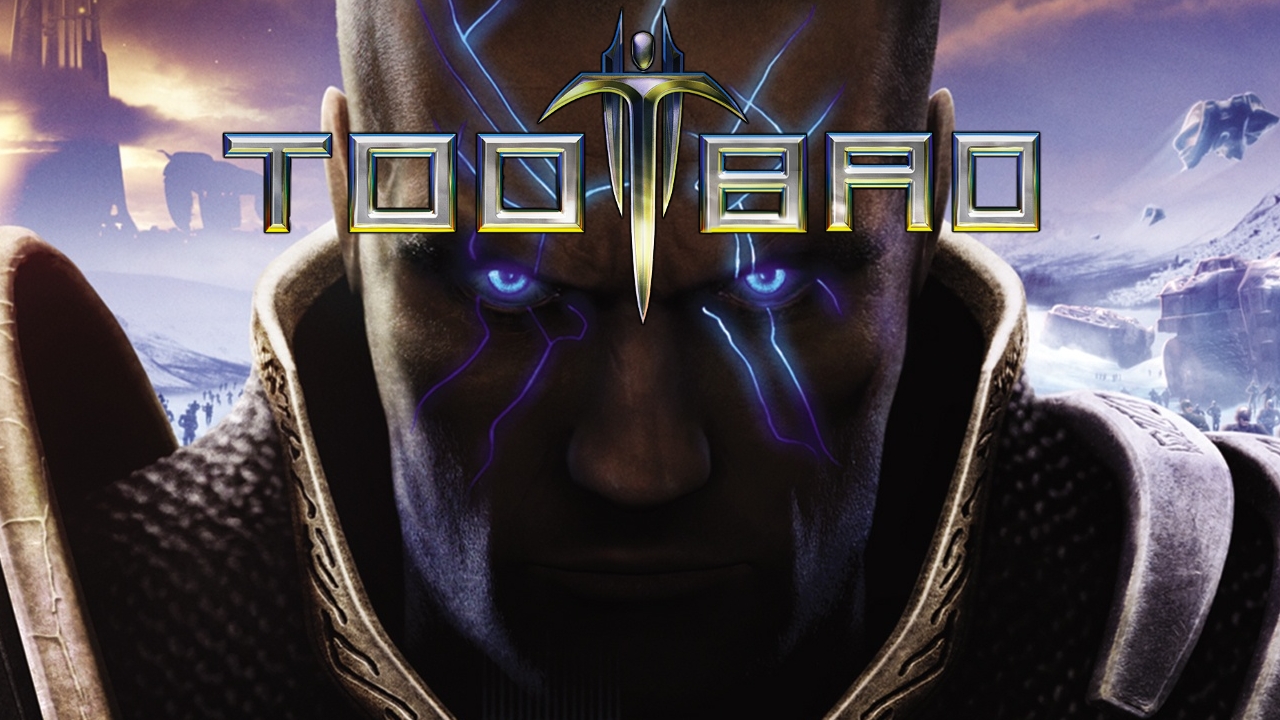
There's nothing quite like a cool new concept to turn the head of an otherwise jaded gamer. In a world of samey spectacle and me-too marketing, the original idea is king, and always very, very welcome. Though it is a double-edged sword. Failing to follow through on an epic premise can prove far more harmful to a developer's rep than any number of copycat outings. Raising our hopes only to dash them against the swirling shores of shoddiness is a crime the internet rarely forgets.
The following 8 games represent some of the boldest, most interesting concepts to appear in the last 10 years, none of which, alas, were ever able to deliver. But damn, they had so much potential. It begins!
Lair
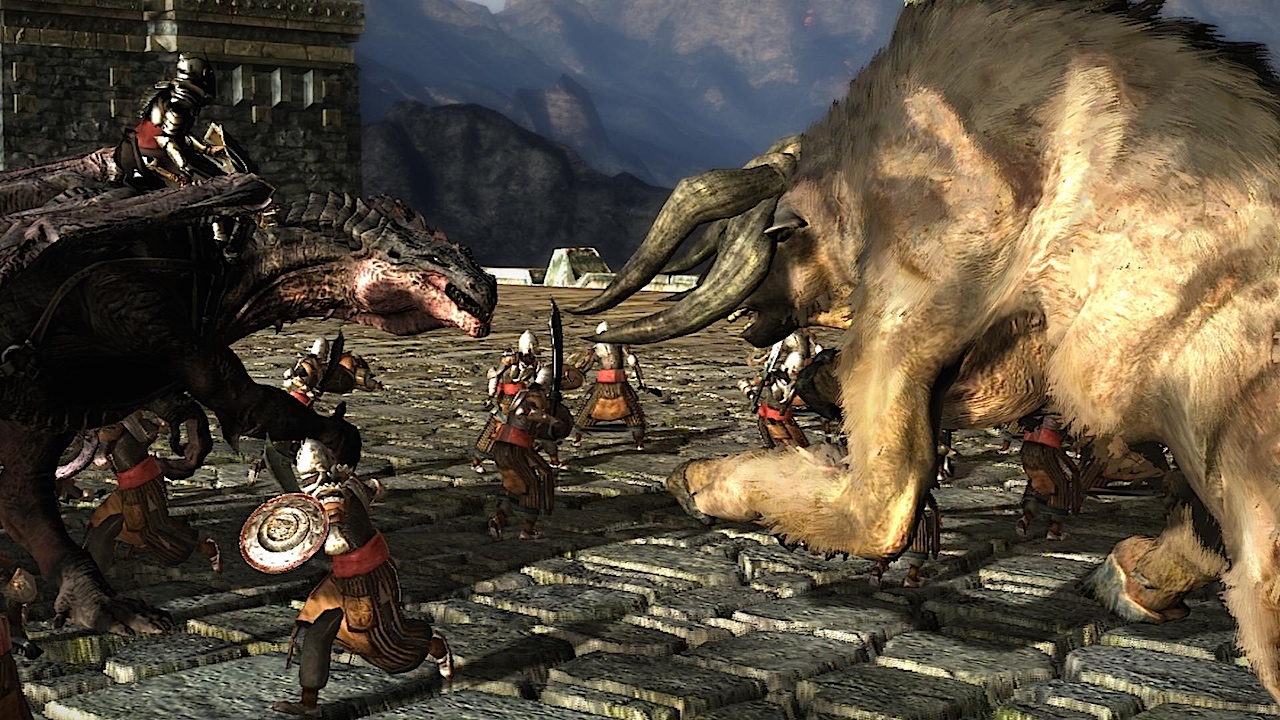
The concept - The precision of a gamepad meets the immersion of a motion controller as you attempt to turn the tide of several epic-scale scraps from atop your fire-breathing dragon. Ride monsters, roast knights and burn entire castles to the ground. It's Targaryen Tycoon baby!
The fumble - Factor 5's Lair will forever be remembered as a awesome idea laid low by poorly implemented technology. In short, the game's motion-control gimmick proved less of a soaring success and more of an immersion-breaking anchor.
The possibilities - With proper implementation, a motion controlled flying title could certainly be made to work, though it makes much more sense to simply scrap the gimmick altogether and map everything onto a regular control pad. Planes are one thing, but a living, breathing entity requires that much more finesse, precision and fluidity. Once that's in the bag, move onto jacking other dragons in mid-air, wrestling other pilots in free-fall and using your flaming breath to box in enemy units. The possibilities are endless.
NeverDead
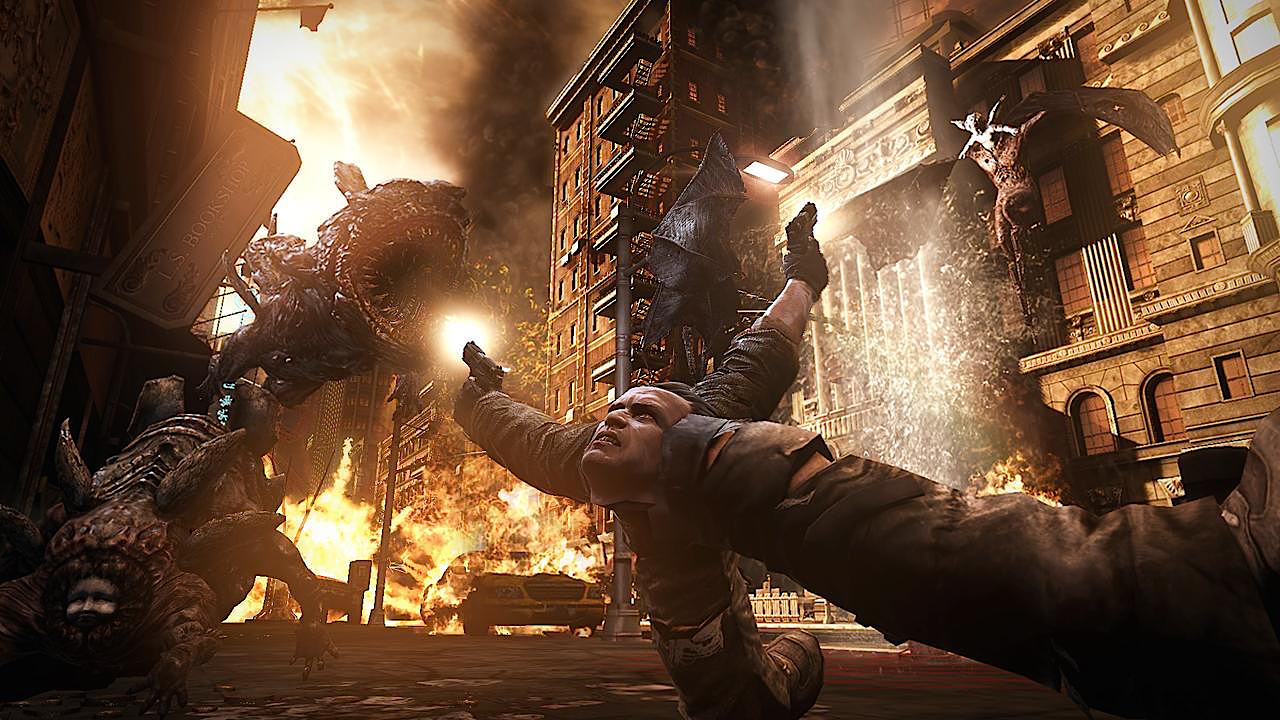
The concept - An immortal demon hunter possesses the uncanny ability to rebuild his own body even after suffering catastrophic damage. If and when he's blown to bits, the player must respond by rolling around (as a severed head), locating and latching onto his missing body parts in order to rebuild his full form. In essence, it's Katamari meets a fun, physics-based shooter.
The fumble - Right from the off, NeverDead frustrated players with its unintuitive control scheme and repetitive action. Reviewers were also critical of the game's storyline and characters, calling them uninteresting and unlikeable.
Weekly digests, tales from the communities you love, and more
The possibilities - Imagine playing a quality 3rd-person shooter a la Gears of War, except every time that you die the game becomes a frantic scrap to reassemble yourself. The premise might even extend to allowing the player to momentarily, tactically 'sacrifice' their body in order to take out large groups of enemies, like a slightly less cartoonish take on 'Splosion Man. God knows how we've all missed out on amazing opportunities to take out a swathe of enemies simply because we were too close to escape the ensuing blast. The game could even go full-on Frankenstein, permitting the player to roll up enemies' 'discarded' limbs in order to power up and utilise different kinds of weaponry. Morbid, yes, but also massively, stupidly fun.
The Order: 1886
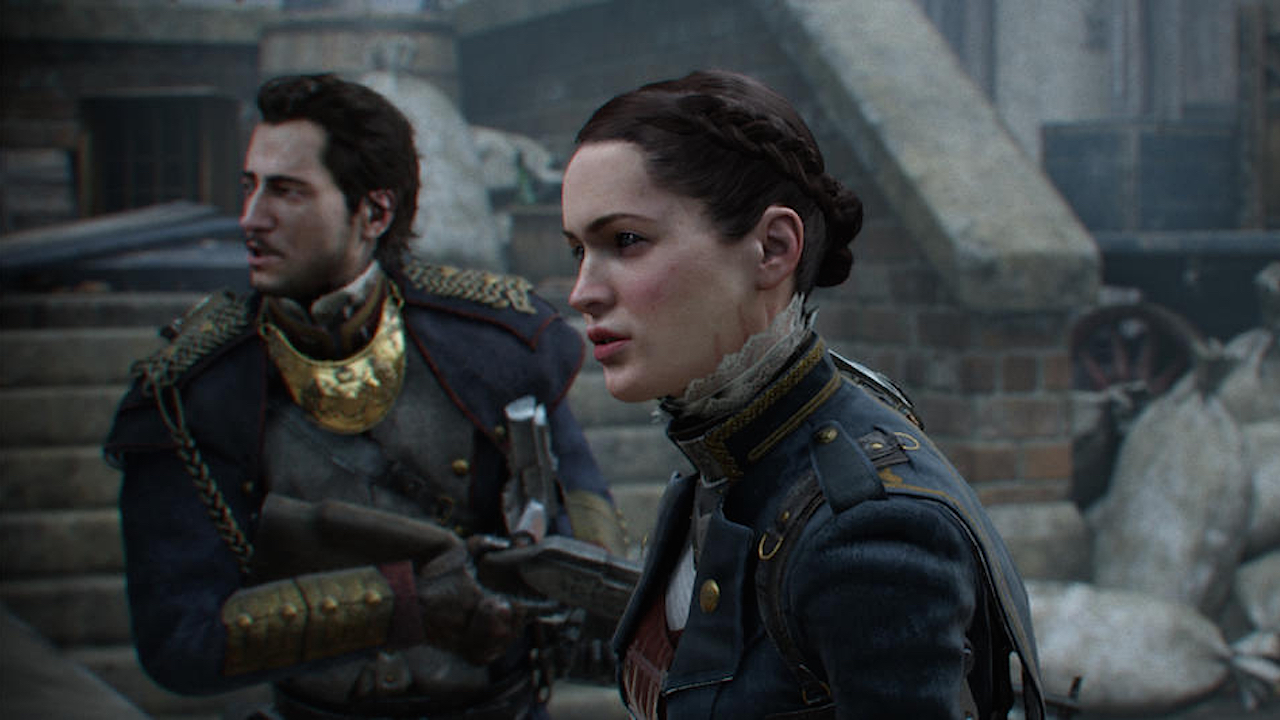
The concept - King Arthur's Knights wage an aeons-long struggle against a race of human/monster hybrids. With mankind back on the ascendancy, and buoyed by numerous steampunk innovations, (lovingly supplied by one Nikola Tesla) players take control of the titular team as they attempt to root out a deadly new conspiracy.
The fumble - For all of its good looks, The Order: 1886 singularly failed to provide players with an engaging proposition. The majority of critics agreed that the game made poor use of its interesting premise, leading users through a short, linear adventure packed tight with meandering cutscenes, unnecessary quick-time events and some all-too familiar gunplay.
The possibilities - Taking down scores of vampires, werewolves and other assorted nasties against the backdrop of a smog-choked steampunk London should never feel routine. For starters the game's four main characters should've all been playable from the off, either via co-op or through some sort of character-switching mechanic. Give them unique abilities and/or weapon types and force the Order to actually work together in order to best their enemy. Instead of cloying linearity, take a page out of The Last of Us' handbook, and give the player a greater sense of agency in deciding how and why to reach certain predetermined 'end zones'. After all, what's the point in creating a beautiful world if we can't very well immerse ourselves in it?
Darkest of Days
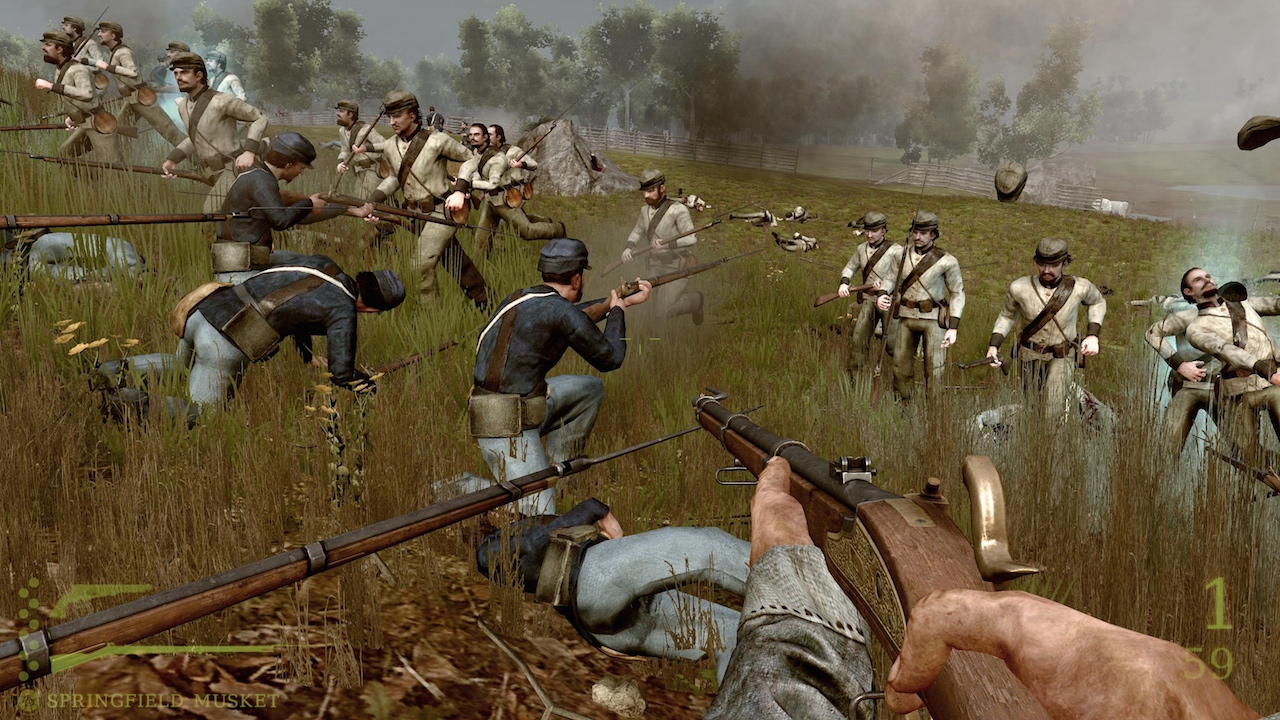
The concept - A time-travelling cyber soldier attempts to prevent the deaths of key historical figures, mixing up archaic and quasi-futuristic weaponry across several sprawling battlefields. It's Time Cop meets Total War, essentially - or at least it ought to be.
The fumble - Darkest of Days took a dynamite premise and promptly proceeded to blow itself to bits with it. Marred by wobbly gunplay, erratic A.I. and almost endearingly dreadful audio presentation, the whole shoddy experience simply stank of over-ambition.
The possibilities - Imagine a less-cartoonish TimeSplitters, one in which every new level introduces a fresh and exciting era of military history. Duke it out with Wellington at the Battle of Waterloo, desperately reloading that trusty musket before the next wave of onrushing enemies. Next, take a turn in the Roman era, slaying scores of unwashed barbarians with naught but a short sword and shield. Then it's off to the old West times, exchanging simple revolver rounds until finally getting wind of your extraction target, and then kablamo - time to whip out that ol' proton-powered plasma pistol and really get to work. From Gladiator to space-Rambo, and all over the course of one incredibly varied campaign. Someone make this. Or, you know, TimeSplitters 4...
Alpha Protocol
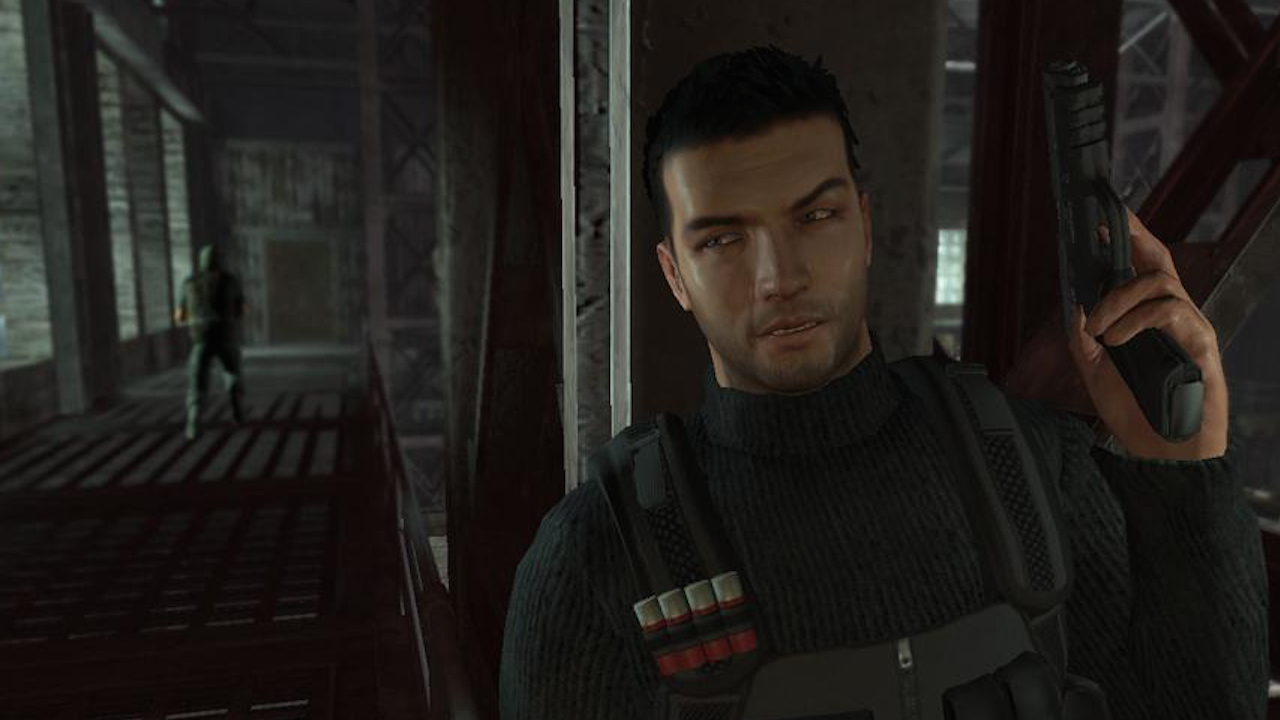
The concept - An action-packed espionage title, with the sleuthing smarts to match. Players must navigate tricky situations - both verbal and otherwise - utilising a deep and far-reaching decision-making system. Spy movie wish fulfillment with dialogue options crafted after the likes of Jason Bourne (highly professional), James Bond (suave and sophisticated) and Jack Bauer (ruthlessly effective/very, very tired).
The fumble - As deep and immersive as the game's dialogue options are, Alpha Protocol still manages to make a hash of its other gameplay contributions. Everything from enemy A.I. characteristics to shoddy shooting mechanics gives the game a distinctly underwhelming flavour.
The possibilities - Despite what the video game industry might have you believe neither citywide shootouts nor tight-fitting rubber outfits represent the be-all and end-all of the espionage experience. What of the nuance, the prep-work - the ability to adopt and maintain a secret identity even whilst schmoozing a gala ball's worth of scumbags? The spy game is as much about these kinds of subtleties as it is the unabashed fun of a toilet stall punch-up. Conversations choices should feel vital, but so should the moments that knit these crucial convos together. Give me the chase mechanics of Assassin's Creed, the driving elements of Forza and the action/narrative balance of a Mass Effect. Is that really asking too much? Yes, probably...
Raven Squad: Operation Hidden Dagger
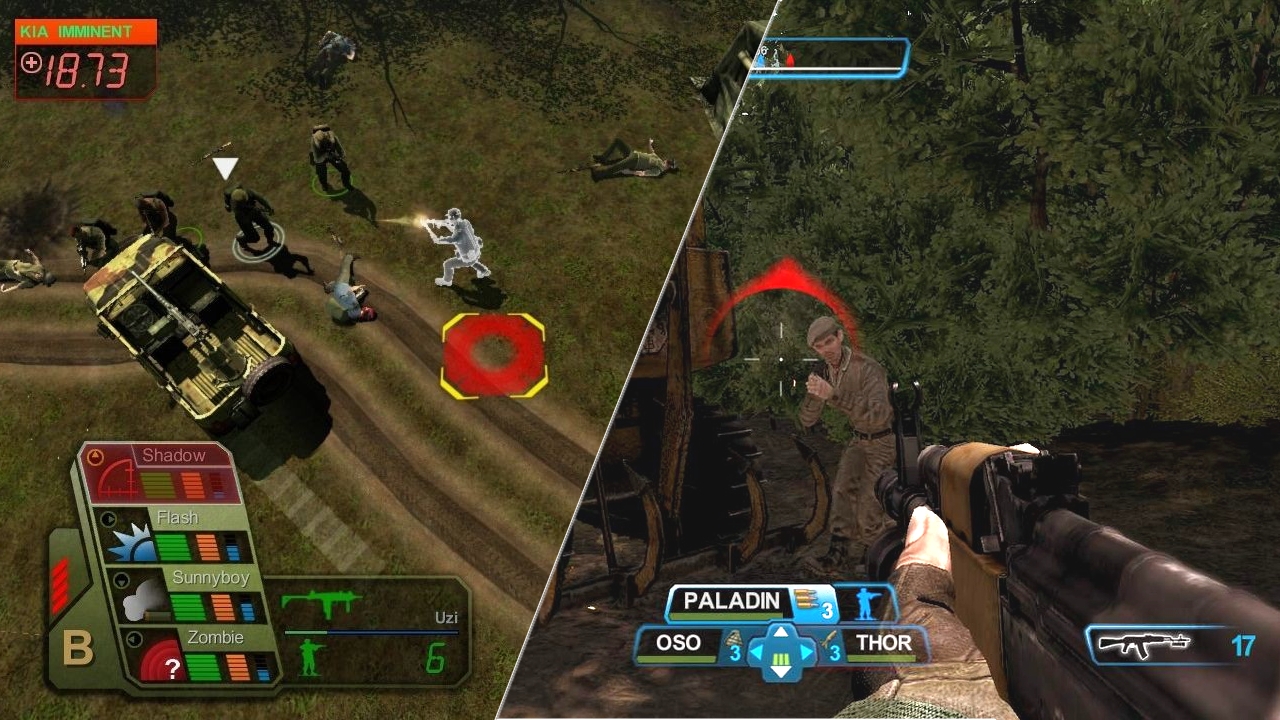
The concept - The focused, squad-based RTS play of Company of Heroes meets the intense up-front action of Call of Duty. As commander of the titular Raven Squad, players are tasked with leading their soldiers through a combination of bird's eye overview strategy and real-time gunplay.
The fumble - For all of its genre-merging ambition, Raven Squad was absolutely panned upon release, with critics lambasting everything from the game's god-awful voice acting to, err, well, everything else.
The possibilities - Imagine playing a great RTS title, but the troops on the ground keep letting you down. Now imagine, you're able to drop right on into their boots and fight the battle for them, doing your absolute damnedest to improve groundside efficiency while all the time trying not to lose sight of the wider struggle. Remaining in the shoes of your trooper might just give you the edge during one critical maneuvre, but the enemy may be also able to capitalise in another field. Likewise, remaining too distant may prevent the player team from achieving crucial breakthroughs in vital areas. It's a balancing act, and one every RTS fan has probably wished they could attempt during spottier moments of A.I. indecision. The idea is great, and doesn't need any changes, bar the execution.
Too Human
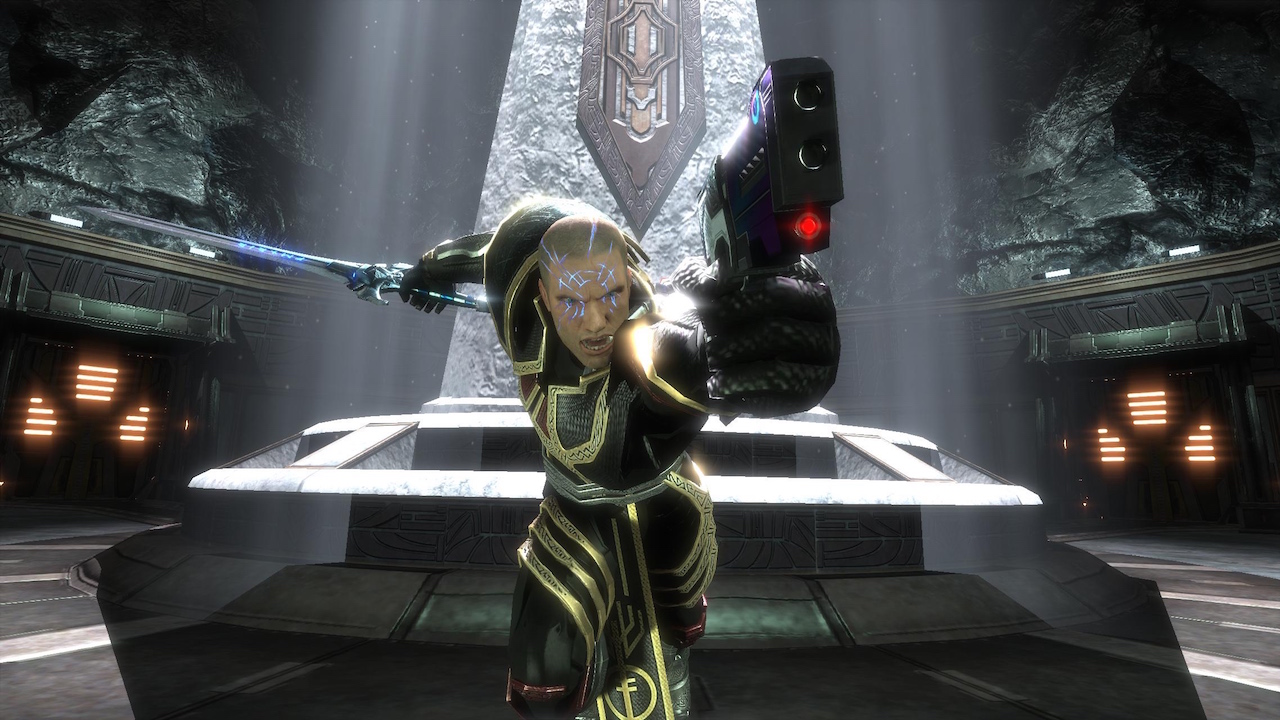
The concept - Norse mythology intertwines with trace elements of cyberpunk in this epic clash of half-man and machine. Players assume the role of Baldur, a cybernetically enhanced human/minor deity charged with protecting the rest of mankind from the swelling scourge of the machines. It's a bit like Thor, plus The Matrix, meets Deus Ex and Mass Effect, with a tiny soupcon of Devil May Cry thrown in for good measure.
The fumble - Too Human seems more concerned with establishing a franchise than it does with giving players a valid reason to return to this cleverly conceived, albeit roughly realised universe. It's all epic scope, duff gameplay. The finished title sorely lacks for polish, with stiff animations, fiddly combat design and repetitious level layouts all undercutting the unique promise of its concept.
The possibilities - In Too Human's defense, the game's narrative, packed tight with issues of false gods, technological inequality and the very nature of humanity proved to be one of the title's strongest facets. Had its combat clicked, then you might easily imagine the series going on to become a major tentpole. Future titles might've tapped even further into Norse myth, introducing sci-fi twists on fabled foes, while further refining the game's RPG and core combat mechanics. Sigh.
Aliens: Colonial Marines
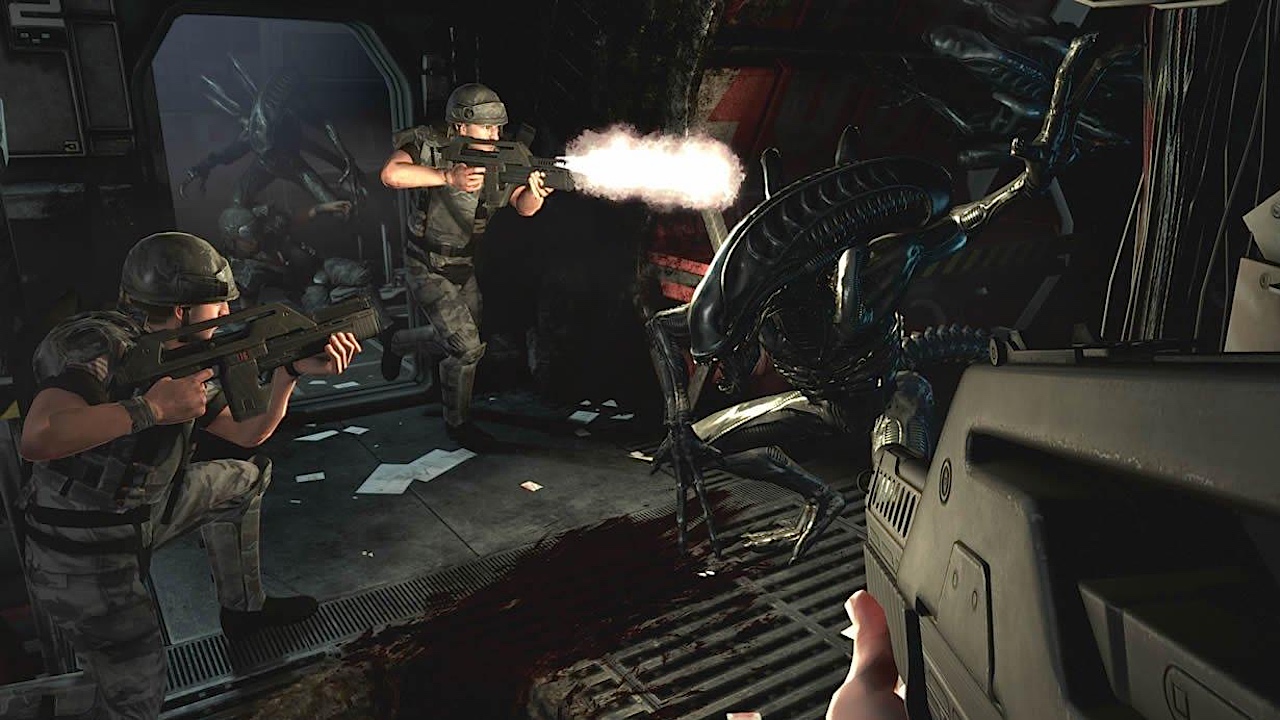
The concept - Imagine the Vietnam War, only now it's taking place in space, and all of the Vietcong have been switched out for slobbery, gut-busting aliens. Now imagine you're part of the laid-back, smack-talking Marine corp sent in to vanquish these nightmarish enemies back into the abyss. Outnumbered, out-thought, but never outgunned, the Colonial Marines are the coolest grunts in the galaxy and now they're at your fingertips.
The fumble - How does a game that took as long to reach market as Aliens: Colonial Marines still manage to feel so rushed? Colonial Marines is a tragic waste, from its glitches to its god-awful graphics. The title even earned the ire of franchise star and voice-acting unfortunate Michael Biehn, who nearly gave up on game work altogether as a result of this shoddy experience.
The possibilities - Anyone who's seen the movie upon which this travesty is based knows that the basic concept behind a Colonial Marines-themed shooter is a winning one. So winning in fact as to have appeared in almost every single militaristic sci-fi title to be released in the last 30 years. Still, there's nothing quite like seeing those original ruffians in authentic action. The only tricky thing to work - one of many that CM got wrong - is the action/horror balance. Turn the xenos into mere cannon fodder, and they lose all their mystique. Get the pacing right though, and you could have a real winner.



